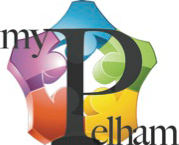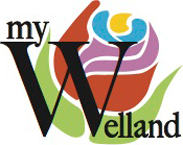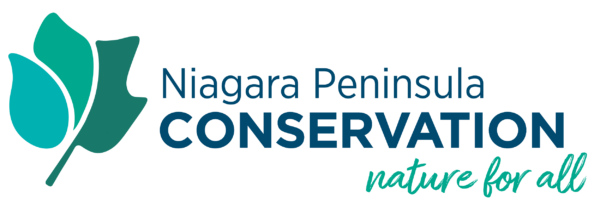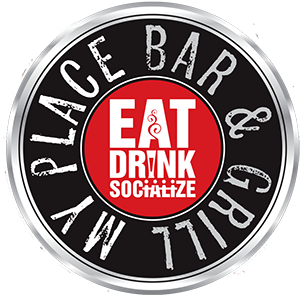They may be on opposite ends of the world map and in different hemispheres, separated by more than 13,000 kilometres and 18 hours between them, but the renowned wine region of Hawke’s Bay, New Zealand has never seemed closer for aspiring winemakers at Niagara College
That’s because one of New Zealand’s top wine schools, the Eastern Institute of Technology (EIT), has embarked on its first Canadian partnership with Niagara College (NC), home of Canada’s first Teaching Winery. Thanks to the new agreement, graduates from the NC’s Winery and Viticulture Technician diploma program are now eligible to complete EIT’s Bachelor of Viticulture and Wine Science degree – a three-year program – in just one-and-a-half years, while gaining exposure to new wine styles, viticulture practices and new experiences in the Southern Hemisphere.
“We are pleased to offer our wine students this exciting new international learning pathway,” said Craig Youdale, dean of Niagara College’s Canadian Food and Wine Institute. “The hands-on applied learning experience they gain at NC promises our students a smooth academic transition into EIT’s bachelor program, where they can build on their studies and experience in one of New Zealand’s top wine destinations.”
EIT is located within the premium winegrowing region of Hawke’s Bay, which is highly regarded as the oldest and one of the largest wine regions in New Zealand, offering a diversity of production, grape varietals and wine styles. It is one of the top tertiary institutes in New Zealand, and a highly respected provider of professional and applied vocational education.
“The New Zealand and Canadian Cool Climate Wine industries have much in common in varietal wines produced and winegrowing but also have been in parallel with impressive development and growth over the last 30 years,” said Sue Blackmore, head of the School of Viticulture and Wine Science at EIT. “Relationship building between Niagara College Canada and Eastern Institute of Technology is a natural extension of the synergies that exist between the two countries’ wine industries and will offer exciting opportunities for students of both institutions.”
With a number of global partners that focus on wine and viticulture – including institutions in China, the U.K., Germany, Italy, and Argentina – NC was considered a natural fit for a partnership with EIT.
The new partnership marks the first academic pathway opportunity to New Zealand for students at Niagara College.
“This new pathway with EIT is another example of NC’s commitment to ensure our students are offered unique international opportunities at all stages of their NC learning journey, including after graduation,” said NC’s senior vice president, International, Sean Kennedy.
NC has been a leader in applied education for over 50 years in the heart of Ontario’s thriving wine and hospitality industries. With wine programs based at its recently renamed Daniel J. Patterson Campus in Niagara-on-the-Lake, NC is home to Canada’s first and only commercial Teaching Winery along with an on-campus 40-acre vineyard, located in the largest wine-producing region in Canada.
Synergies between NC and EIT include world-class teaching and learning facilities, and a supportive rapport between faculty and students, as well as a complementary ethos of combining practical hands-on experience with theoretical learning.
Students enrolled in EIT’s Bachelor of Viticulture and Wine Studies program take part in commercial vintage practices and research which provide direct contact and networking with the New Zealand industry. Students have an opportunity to complete a commercial vintage and a research project in collaboration with an industry partner. Course work topics include wine business, sustainability issues, sensory palate development, winery engineering, advanced viticulture practices, and wine chemistry.
With two entry points, Niagara College students will have the option of beginning their studies at EIT in either February or July.
The new agreement may only be the beginning. Both postsecondary institutions note the potential for additional collaboration in the future, such as opportunities for EIT students to gain study and practical experience in Canada, as well as staff exchange and professional development.
The Eastern Institute of Technology (EIT) is one of New Zealand’s top tertiary institutes and is ranked as a category 1 institution by the New Zealand Tertiary Education Commission and Ministry of Education. As a highly respected provider of professional and applied vocational education, EIT welcomed over 10,000 students in 2019, including 1,200 international students from 50 different countries.
EIT offers over 150 qualifications, which have been developed in response to global industry needs. It offers programmes at certificate, diploma, bachelor’s, graduate diploma, postgraduate diploma and master’s degree level. Visit eit.ac.nz.
Niagara College’s Teaching Winery is the first and only commercial teaching winery in Canada. It is located at the College’s Niagara-on-the-Lake Campus, along with the NC Teaching Brewery and – the latest addition in September 2018 – the NC Teaching Distillery which were also the first of their kind in Canada.
Niagara College offers more than 130 diploma, bachelor degree and advanced level programs; as well as more than 600 credit, vocational and general interest Part-Time Studies courses. Areas of specialization include food and wine sciences, advanced technology, media, applied health and community safety, supported by unique learning enterprises in food, wine, beer, distilling, horticulture and esthetics. For more information visitniagaracollege.ca.
Photo:Visitors from New Zealand’s Eastern Institute of Technology stand with representatives from Niagara College’s Canadian Food and Wine Institute at the Wine Visitor + Education Centre, located at NC’s Daniel J. Patterson Campus in Niagara-on-the-Lake, on January 28, 2020.
From left: Gary Torraville (assistant dean, NC’s Canadian Food and Wine Institute); Fred Koenders (executive dean of Commerce, EIT); Sue Blackmore (head of school Viticulture and Wine Science, EIT); Craig Youdale (dean, NC’s Canadian Food and Wine Institute); and Taylor Eubanks (senior administrator, Compliance and International Partnerships, EIT).



















